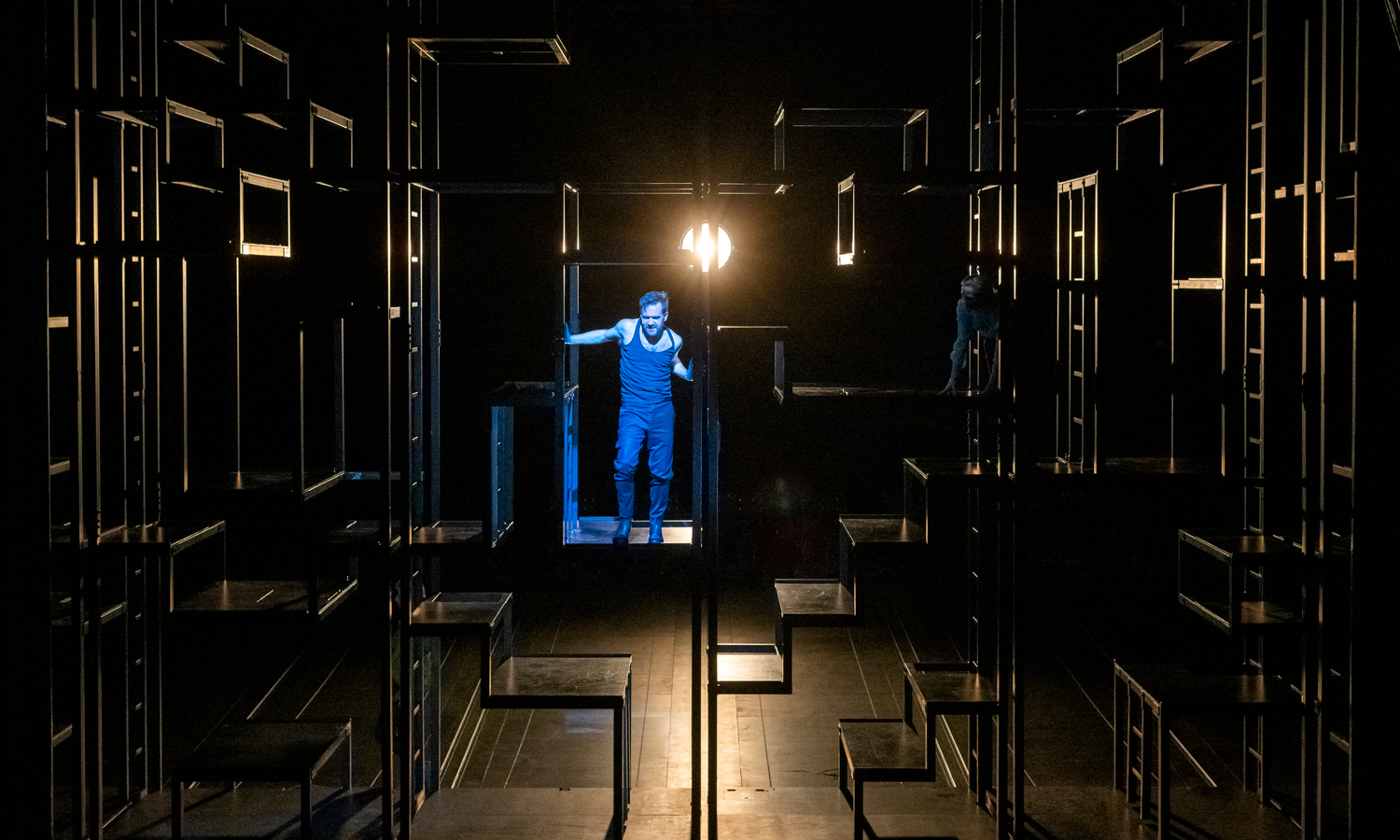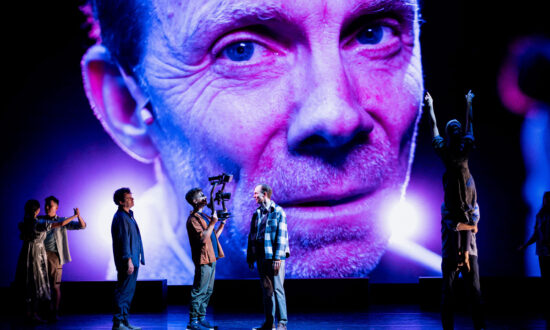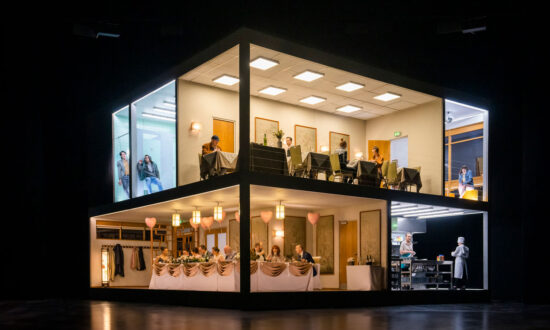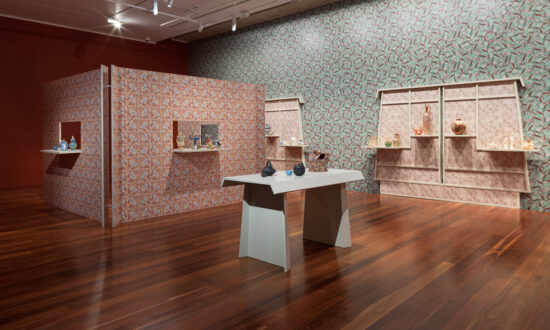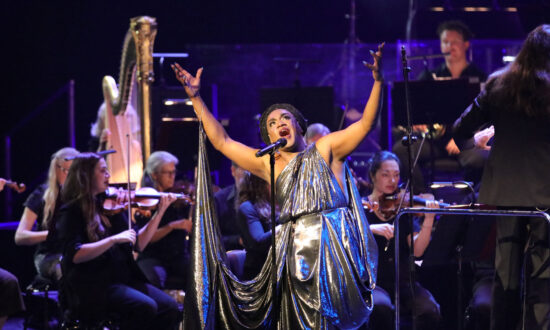The Threepenny Opera is just four years short of its hundredth birthday and it has had a long history of popular successes and mixed receptions. In Berlin, in 1928, it did poorly when it opened and then became popular with the smart set, who seemed oblivious to its bitter satire.
Kurt Weill’s catchy, inventive music was the kicker – “Mack the Knife” became a popular hit, along with “The Cannon Song”. Bertolt Brecht’s text, extensively derived from Elisabeth Hauptmann’s translation of John Gay’s 18th-century satire The Beggar’s Opera, often came a poor second.
It is, in various proportions, a play, an opera, a song cycle, a vaudeville turn, and a caustic commentary on poverty and social inequality. In an interview, director Barrie Kosky called it a never-ending labyrinth: “Because once you open one door and solve one problem, another problem rears its ugly head… Any director or actor who tells you this piece is not really tricky is lying.”
In 2021 Kosky began preparation of the production we are now seeing at the Adelaide Festival. Working with Brecht’s own company, the prestigious Berliner Ensemble, he spent eight weeks in rehearsal and then, after a run-through, found himself lost in the labyrinth. He scrapped costumes, re-did scenes, and began again. That was January and by August he had made major changes.
What we saw on opening night in Adelaide is a fascinating mix of Barrie and Bertolt. The play is all there, but with a terser translation in the surtitles and moved well clear of any visible beggars, or underclass affectation. There are notable Kosky signatures. The stage curtain is dazzling tinsel through which, initially, the actors peer. The opening “Ballad of Mack the Knife” is sung (brilliantly) by the disembodied, glitter-speckled head of Dennis Jankowiak (aka The Moon over Soho), three metres above the stage.
When Rebecca Ringst’s set design is eventually revealed it looks like a giant jungle gym, or maybe a Bauhaus Rubix cube. Strikingly lit by Urlich Eh, it is a steel geometric cage structure into which the performers can climb and move, perform duets and directly address the audience.
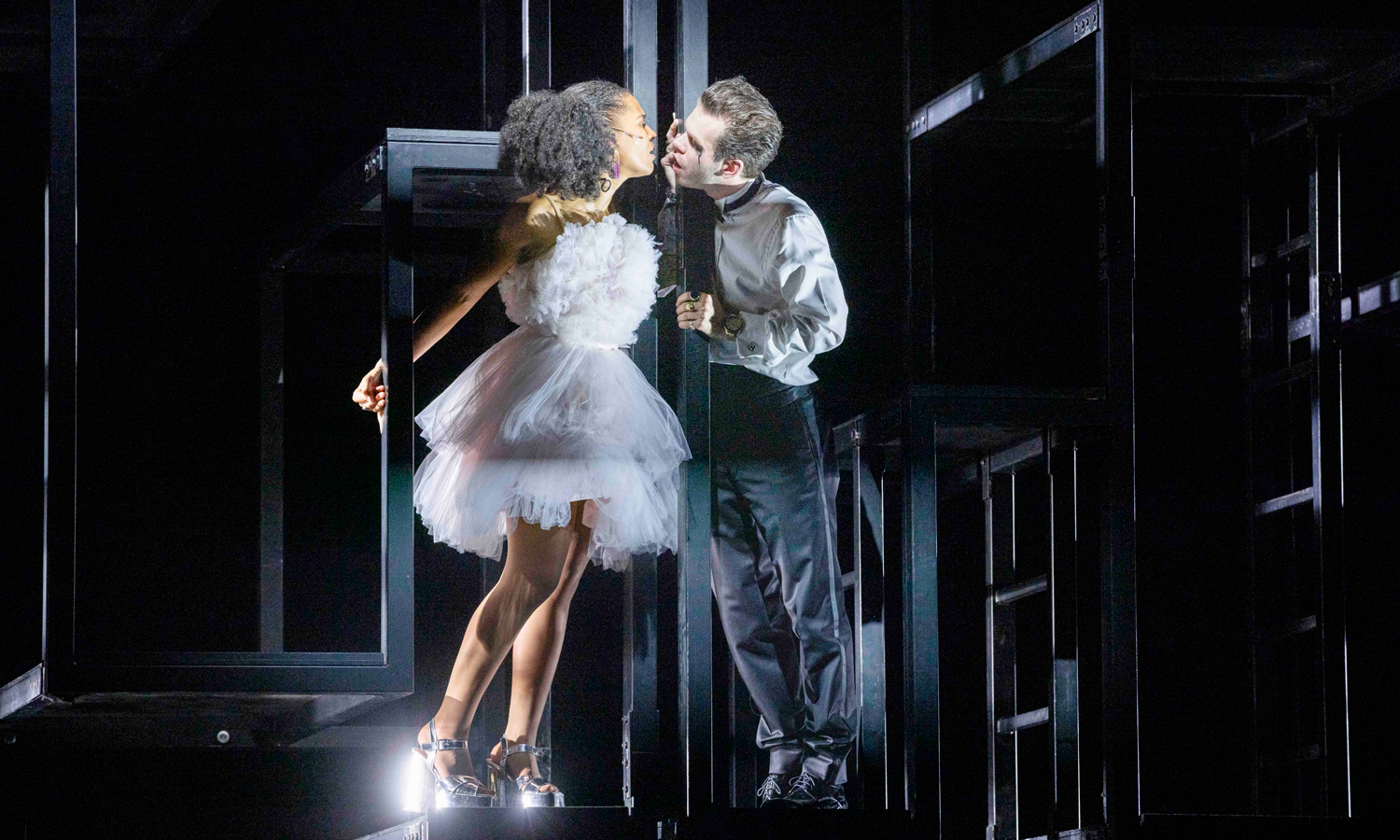
Cynthia Micas and Gabriel Schneider in The Threepenny Opera. Photo: Moritz Haase
The ensemble performances are splendid. Key to the play are the awful Peachums. Jonathan Jeremiah (the impressive Tilo Nest, dressed in a black velvet suit) runs The Beggars Friend Ltd, a franchise of registered supplicants collecting money on pitiful retainers. He expounds his mercenary and mercantile philosophy in his “Morning Hymn” and “The Song of the Insufficiency of Human Endeavour”.
His wife Celia (Constanze Becker) is also a ruthless driving force in the action. Dressed in a long fur coat, her hair in a dark bob, she looks like a figure in a Kirchner painting. Becker, like Nest, is a compelling performer. Celia sneers through “The Ballad of Sexual Obsession” but she cannot prevail with daughter Polly (Cynthia Micas), dressed like a party girl in white taffeta, and head over high heels for Mack the shark.
Julia Berger, as Spelunken Jenny, performs a knockout version of “Pirate Jenny” but I still prefer the Marc Blitzstein lyrics to the Mannheim and Willett version. As Chief of London police Tiger Brown, Kathrin Wehlisch provides goofy slapstick, especially in the second act. Kosky takes Brecht’s admiration for Chaplin at his word and also lets Laura Balzer, as Lucy, a little too much off her zany tether, although her “Jealousy Duet” with Micas is vintage screwball.

Get InReview in your inbox – free each Saturday. Local arts and culture – covered.
Thanks for signing up to the InReview newsletter.
And, as Macheath, Gabriel Schneider is the very model of the modern psychopath. With his slicked-back hair, skinny lounge suit and sporting heavy mascara, he looks like James Dean or the young Elvis. We can see why he is catnip to women and we glimpse his lethal proclivities. His duet of “The Cannon Song” with Wehlisch is a highlight, as is his dubiously penitential “Ballad for Forgiveness” before the outlandish, but welcome, deus ex machina to conclude.
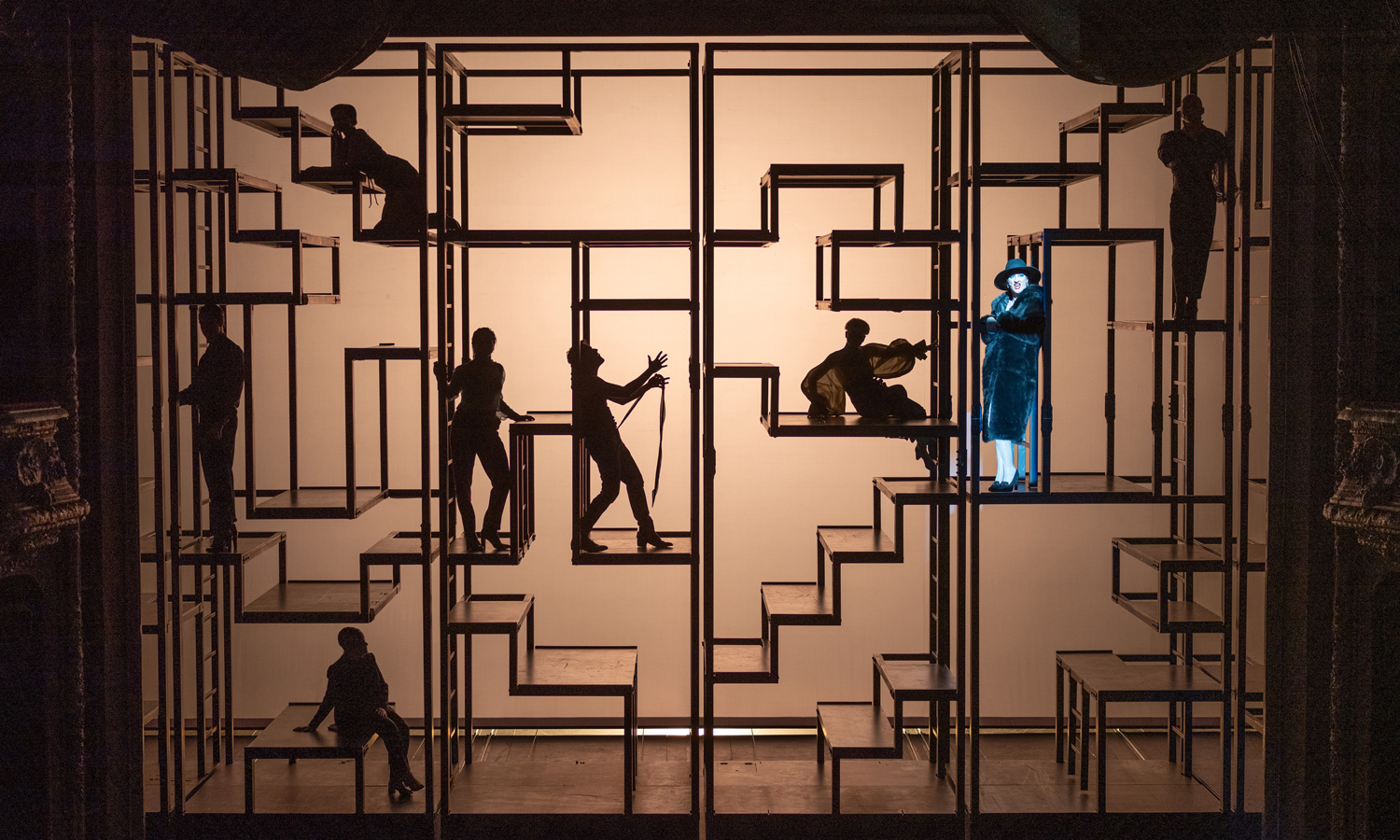
Rebecca Ringst’s set design resembles a giant jungle gym. Photo: Berliner Ensemble
Also brilliant in this vivacious production is the band. Led by conductor Adam Benzwi (also on piano), the six musicians play Kurt Weill’s jazz-inflected, suavely melodic music to perfection. Kosky has declared Weill as significant to music theatre as Wagner and these musicians further that claim.
With this production, Kosky has navigated the labyrinth. Some Brechtians might say it is too frothy for the master’s voice; not enough vehemence. Too much schtick and not enough lehrstücke. But there is something exhilarating about producing this well-poised transgressive comedy in the heart of the Berliner Ensemble. When he was there, Kosky admitted to carving his (very small) initials on Brecht’s writing desk. This production is his signature writ large. And sometimes it’s okay to be more Barrie than Bert.
The Threepenny Opera is playing at Her Majesty’s Theatre until March 10.
Read more 2024 Adelaide Festival coverage here.
Support local arts journalism
Your support will help us continue the important work of InReview in publishing free professional journalism that celebrates, interrogates and amplifies arts and culture in South Australia.
Donate Here
